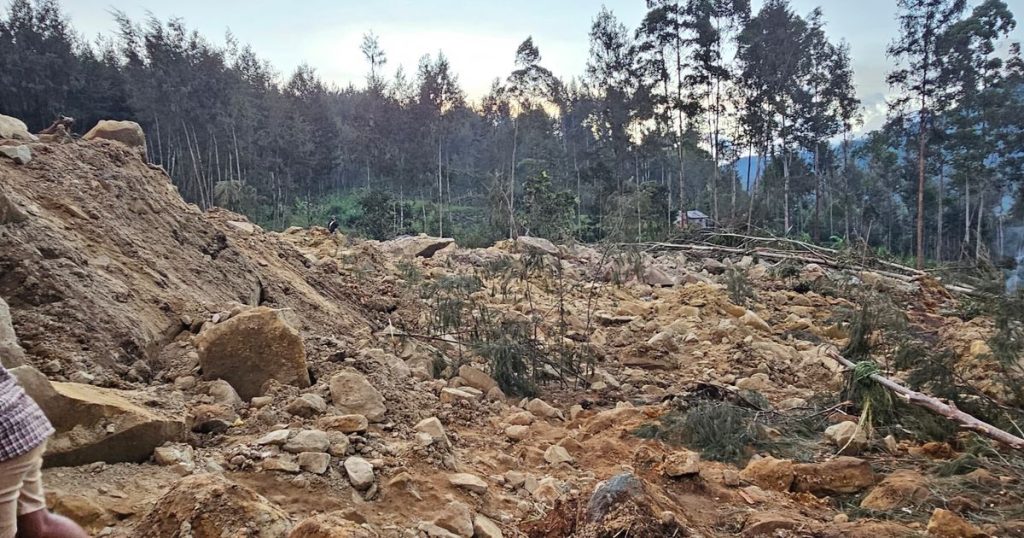The Papua New Guinea government reported that over 2,000 people are presumed dead after a landslide buried the village of Yambali in the early hours of Friday morning while its residents were asleep. The remote and mountainous location of the village has made search and rescue operations challenging and dangerous. The government’s death toll estimate is significantly higher than the U.N.’s figure of 670, with only six bodies recovered so far. Estimates of the total number of affected individuals have varied, but it is unclear how officials arrived at the 2,000 figure.
The difficult access to the area and the restive local population have complicated response efforts to the disaster. The highway to the nearest town of Porgera, vital for aid deliveries, was blocked by the landslide, cutting off the affected area from essential supplies. Emergency responders had to clear debris by hand for over two days, until an excavator was donated to assist with the operation. Survivors have been reluctant to allow heavy machinery to be used for fear of harming the bodies of their relatives. Ongoing tribal warfare in Enga province has required military escorts for aid convoys.
The response to the disaster has been further hampered by the presence of ongoing security threats in the region, including a recent resurgence in tribal violence. Security concerns have limited aid convoys to travel only during daylight hours, and emergency crews face the additional threat of the earth continuing to shift in the disaster area. Currently, there is a sense of urgency as the debris is becoming increasingly waterlogged and poses a risk of further sliding. Communities downstream have already been evacuated as a precaution.
With the destruction of small farms and food gardens that sustain the village’s subsistence farming population, survivors of the Yambali landslide will require ongoing assistance. Moving survivors to safer locations, providing food, water, and shelter, are immediate priorities. The area’s reliance on the streams buried by the landslide for drinking water adds to the urgency of the situation. The government has formally requested international assistance, and countries like the United States and Australia have expressed readiness to provide support. As the situation continues to unfold, it is uncertain what assistance will be required for other affected areas past Yambali.
Papua New Guinea’s geographical location in the Pacific Ocean’s “Ring of Fire,” a region known for its volcanic activity and earthquakes, presents ongoing safety challenges. With an estimated population of 10 million, the country faces multiple obstacles in carrying out effective disaster response efforts. The scale of the disaster, coupled with ongoing security concerns and logistical challenges, underscores the urgent need for international assistance. The long-term impact on survivors and the wider community remains to be seen, but the immediate focus is on meeting basic humanitarian needs and ensuring the safety and well-being of those affected by the devastating landslide.








